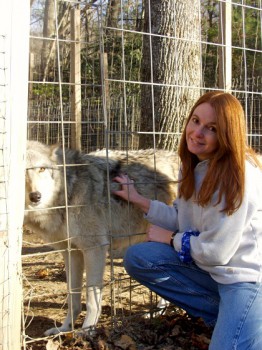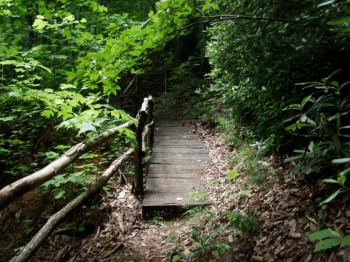Michelle Muto talks Corpses, Deceased Protagonists, and Old Fashioned Piracy
 Michelle Muto has never properly observed Talk Like a Pirate Day, but can tell you how a human body decomposes. She managed to get that information out of city workers without having them turn her in to the police or psych ward. After a time with a large literary agency that decided, ultimately, that her work was too much like another client’s and thus they could not represent her, she took the plunge and became an indie writer, and I am so glad she did.
Michelle Muto has never properly observed Talk Like a Pirate Day, but can tell you how a human body decomposes. She managed to get that information out of city workers without having them turn her in to the police or psych ward. After a time with a large literary agency that decided, ultimately, that her work was too much like another client’s and thus they could not represent her, she took the plunge and became an indie writer, and I am so glad she did.
I discovered her first by reading five star review after five star review of her book, Don’t Fear the Reaper, and by the time I got around to reading it, knew immediately that I wanted to meet and get to know the author who wrote it. She kindly agreed to let me interview her.
Oh, and she should know how to talk like a pirate because she’s a direct descendant of William Howard. So it’s obvious right? Okay, maybe not. He was Blackbeard’s quartermaster.
An Interview with Michelle Muto
Conducted and edited by Emily Mah, January 2012
First a little background. Could you introduce yourself to our Black Gate readers?
All my life I’ve loved books. But, I didn’t much care for the whole starving artist thing so I set writing aside and went to work as a long-time loyal worker-bee in the corporate world. That is, until the corporate life wasn’t loyal back. I’ve taken my severance check and reinvented myself. I’m back to the starving artist gig, but I’ve never been happier in many ways.
I love animals, chocolate, sports cars, and changes of season. I’m married, have two dogs, and live in NE Georgia.
![]() Before you were a published author, what jobs had you held?
Before you were a published author, what jobs had you held?
Mostly, I’ve been an IT professional. I’ve been a Systems Analyst, Network Administrator, and a Project Manager. I’ve also worked as a Tech Writer. Occasionally, I still do freelance Tech Writing jobs when they’re available.
You’re the first indie writer I’ve interviewed, so could you give us an idea of your path to publication?
I started out trying for the traditional route. The Book of Lost Souls was with a very large agency for a long time. But, in the end, another client decided to write a similar story and they couldn’t represent me due to conflict of interest. Other agents felt the book was too lighthearted and wanted something darker. So I wrote another book. Don’t Fear the Reaper had a great deal of agent interest with some of the best compliments ever, yet a lot of agents felt the book wouldn’t sell in a weak economy or that the subject matter was too dark. I didn’t see any reason to let good manuscripts languish on my computer. Although I’m still open to traditional publishing, I’ve stopped actively pursuing agents because all the time spent researching and querying is time I could spend writing.
Can you describe a typical day in your life? Do you keep a structured schedule for writing?
Every morning, I get the business end of my day behind me. Then I sit down to write. Late afternoons or evenings are spent catching up on emails, blogs, and personal matters. It doesn’t always work out the way I plan, but it’s a schedule I try to stick to. I’m trying a more rigid schedule this year because I’ve found that promotion work can heavily eat into my writing time.
Don’t Fear the Reaper is about a teenager who commits suicide. This much we know from the first scene. We then learn that her twin was murdered. I know you’ve told me this was a hard book to write, and it’s easy to see why. What inspired you to tackle such dark themes?
When I was querying The Book of Lost Souls, agents kept asking if I had anything darker. Agents were also crying out on blogs and Twitter that they also wanted something original. I thought about all the books that were on bookshelves and came up with reapers. From there, I just built the story around the subject of death and the afterlife. 
Without getting too personal here, are there life experiences you’ve had that help you identify with your characters?
Yes. I had to get the reader to have empathy for Keely, my main character in Don’t Fear the Reaper. That’s often hard to do with suicide victims. I’ve never been suicidal, but I do know what it’s like to lose people I love. Unfortunately, I’ve lost a lot of those people. I channeled all my grief into the story.
Opening old wounds was a difficult thing to do. The scenes with Mr. Manero [Interviewer’s Note: This is a nursing home patient near to death, who’s dog haunts his bedside, waiting for his master to cross over] is closer to home than any other part of the book since it was taken from my own father’s death. I think those memories helped make the opening less graphic and more emotional, more haunting.
What kind of research did you do for this book?
I researched suicides, death by exsanguination, reapers and their role in many cultures.
What’s the strangest research you’ve ever done?
Morgues, corpse timelines, and autopsies. I needed to know about the coolers bodies were kept in and the equipment used in autopsies. I also needed to know a timeline – the condition and appearance of a corpse: one who had committed suicide by slitting her wrists, and that of a body left to decay. Online research is one thing, but contacting the county morgue to verify my findings and ask about autopsy procedures for underage suicide victims felt a bit awkward. At first, I wasn’t sure if they’d think I was suicidal or even homicidal. In the end, they believed me and even offered to take me on a brief tour.
Can you tell us about your other book and the Indie Chicks anthology?
The Book of Lost Souls is the story of small town teen witch, Ivy MacTavish. Ivy sets out to change a lizard into a date for a school dance and before she knows it, she’s in the midst or a murder mystery involving some of history’s most nefarious killers and black magic spell books. It’s a fun book with mystery, friendship, romance, and plenty of humor. The Indie Chicks anthology is a collection of personal stories of twenty-five women and how they came to indie publishing along with samples of their work. I was asked for my own story: The Little Book that Could & the Magic Within last September. We all agreed the proceeds should go to a well-deserved charity, and when one of the women’s mother was diagnosed with breast cancer, I made the recommendation that our sisters in words should rise to the cause and donate all proceeds to the Susan G. Komen foundation. The originating post of the Indie Chicks is still on my blog. It’s a touching and interesting story.
How about upcoming releases from you. Both Don’t Fear the Reaper and The Book of Lost Souls are the first installments of a series, when can we expect sequels?
I’m working on the sequel to The Book of Lost Souls now. I hope to have both sequels out this year. Hopefully, late spring for the sequel to The Book of Lost Souls, and late fall for the sequel to Reaper.
Could you describe the characteristics of a Beelzepup? I hear that you have one living with you.
LOL! Yes, I have the origi![]() nal Beezlepup and the role model for Devlin in The Book of Lost Souls. Beezlepups are affectionate, silly, mischief loving, chaos creating dogs. They’re never malicious, just over-the-top curious and demand to be the center of attention. Nothing makes a Beezlepup happier than dirt, crazy behavior, and an audience. My Beezlepup’s name is Ronan, aka The Ronanator.
nal Beezlepup and the role model for Devlin in The Book of Lost Souls. Beezlepups are affectionate, silly, mischief loving, chaos creating dogs. They’re never malicious, just over-the-top curious and demand to be the center of attention. Nothing makes a Beezlepup happier than dirt, crazy behavior, and an audience. My Beezlepup’s name is Ronan, aka The Ronanator.
How did you find out you are descended from Blackbeard’s Quartermaster?
My mother’s family is from Ocracoke Island. Growing up, I knew that Ocracoke played host to Blackbeard in history, which was pretty neat. Kids on the island used to hunt for his buried treasure. I also knew that my grandmother was a descendant of William Howard, a seafarer who made the island his home in the 1700’s. Most of my life I’d heard about my island ancestors and how the Howards were one of what the old timers on Ocracoke call one of the originating families.
About a year ago, I received a phone call from an elderly relative still on the island. He’s worked on genealogy his whole life and wanted to know some information about my late mother – what her life had been like after leaving the island, and about myself. He’s written books on most all of the founding familes and was working on updating one of his books. One thing lead to another and he told me that my ancestor, William Howard, was indeed Blackbeard’s Quartermaster.
For anyone interested, here’s a link to the Colonial Williamsburg Journal, which mostly mentions Blackbeard, but does acknowledge that William Howard was his quartermaster www.history.org/foundation/journal/blackbea.cfm. For my own family history, there’s this under the section The backbone on Our State, North Carolina. Family genealogy: Howards, Garrishes, Jacksons & Stowes of Ocracoke Island, North Carolina: Their ancestors and descendants by Earl William O’Neal. 
You’re also an amateur photographer. Have you got an image you’d like to share? Can you tell us a little about it?
Photography is a hobby I wish I had more time for. This image is one I took in Western North Carolina. I call it The Path, and it’s currently on my desktop as a reminder that writing is very much like the photo: serene, inviting, and yet the destination is often unknown.
Many thanks to Michelle for the interview. I highly recommend her book, Don’t Fear the Reaper. Strong writing, a spooky premise, and a very compelling main character.
-Emily
Excellent interview, and a wonderful book, Michelle.
[…] Black Gate (Emily Mah) interviews Michelle Muto. […]